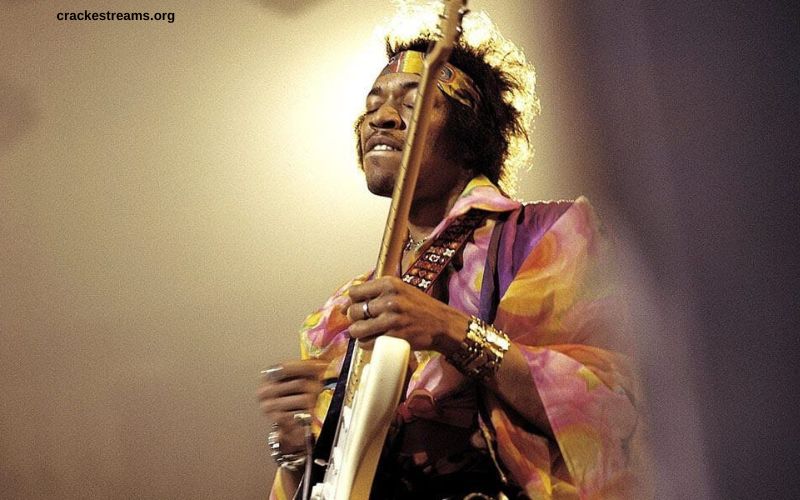Music has a unique way of transcending time, cultures, and languages. Among the instruments that have significantly shaped the musical landscape, the guitar stands out for its versatility and emotional depth. Over the decades, numerous guitarists have risen to prominence, each bringing their unique style and influence to the world of music. This article celebrates some of the best guitar players of all time, exploring their contributions and lasting legacies.
Jimi Hendrix
James Marshall “Jimi” Hendrix is often hailed as the greatest electric guitarist in music history. Hendrix’s innovative approach to the guitar was revolutionary, characterized by his use of feedback, distortion, and his uncanny ability to blend different genres. Born in 1942 in Seattle, Hendrix’s rise to fame was meteoric. His performance at the Monterey Pop Festival in 1967, where he famously set his guitar on fire, remains iconic.
Hendrix’s influence is evident in his pioneering use of the wah-wah pedal and his ability to create complex, emotive soundscapes. His albums, particularly “Are You Experienced,” “Axis: Bold as Love,” and “Electric Ladyland,” contain some of the most influential guitar work ever recorded. Songs like “Purple Haze,” “Voodoo Child (Slight Return),” and “All Along the Watchtower” showcase his technical prowess and creative genius.
Eric Clapton
Eric Clapton, known as “Slowhand,” has had a profound impact on the rock and blues genres. Born in England in 1945, Clapton’s career spans over five decades. He first gained prominence with The Yardbirds and later with Cream, where his fiery solos and emotive playing earned him critical acclaim. Clapton’s ability to convey deep emotion through his guitar playing is unmatched.
His solo career further cemented his status as a guitar legend. Songs like “Layla,” “Tears in Heaven,” and “Wonderful Tonight” highlight his versatility and melodic sensibility. Clapton’s ability to seamlessly blend rock, blues, and pop elements has made him one of the most respected and influential guitarists in history.
Jimmy Page
Jimmy Page, the driving force behind Led Zeppelin, is another guitarist whose influence cannot be overstated. Born in 1944 in England, Page began his career as a session musician before forming one of the most iconic rock bands of all time. Known for his technical proficiency and innovative use of the guitar, Page’s work with Led Zeppelin has become legendary.
Tracks like “Stairway to Heaven,” “Whole Lotta Love,” and “Kashmir” feature some of the most memorable guitar riffs and solos ever recorded. Page’s use of alternate tunings, his incorporation of Eastern music influences, and his mastery of both acoustic and electric guitar have made him a versatile and pioneering figure in rock music.
Eddie Van Halen
Eddie Van Halen revolutionized the world of rock guitar with his innovative playing style and technical brilliance. Born in 1955 in the Netherlands and raised in California, Van Halen co-founded the band Van Halen, which became synonymous with high-energy rock and virtuoso guitar playing.
Van Halen’s use of two-handed tapping, harmonics, and rapid-fire picking set a new standard for guitarists. His solo in “Eruption” is often cited as one of the greatest guitar solos of all time, showcasing his extraordinary skill and creativity. Eddie Van Halen’s influence can be seen in countless guitarists who have attempted to emulate his groundbreaking techniques.
Stevie Ray Vaughan
Stevie Ray Vaughan brought a renewed vigor to the blues genre with his fiery playing and soulful expression. Born in 1954 in Texas, Vaughan’s rise to fame in the 1980s helped re-establish the popularity of blues music. His debut album “Texas Flood” introduced the world to his blistering guitar work and powerful vocals.
Vaughan’s style was a blend of Texas blues, rock, and jazz influences. Songs like “Pride and Joy,” “Cold Shot,” and “Couldn’t Stand the Weather” highlight his technical prowess and deep emotional connection to the music. Despite his untimely death in 1990, Vaughan’s legacy continues to inspire blues guitarists around the world.
Carlos Santana
Carlos Santana’s fusion of Latin music with rock and blues has made him one of the most distinctive guitarists in music history. Born in Mexico in 1947, Santana’s career took off after his band’s performance at Woodstock in 1969. His unique sound, characterized by melodic phrasing and soulful playing, set him apart from his contemporaries.
Albums like “Abraxas” and “Supernatural” showcase Santana’s ability to blend genres seamlessly. Hits such as “Black Magic Woman,” “Oye Como Va,” and “Smooth” highlight his signature tone and rhythmic sensibility. Santana’s contributions to music have earned him numerous awards and a lasting place in the pantheon of guitar greats.
B.B. King
Riley B. King, better known as B.B. King, is a towering figure in the blues genre. Born in Mississippi in 1925, King’s expressive playing and soulful voice earned him the title “King of the Blues.” His guitar, affectionately named “Lucille,” became an extension of his voice, allowing him to convey deep emotion and intricate musical ideas.
King’s influence extends beyond the blues, impacting rock, jazz, and R&B musicians. Songs like “The Thrill Is Gone,” “Every Day I Have the Blues,” and “Sweet Little Angel” are staples of the blues repertoire. King’s use of vibrato, string bending, and his lyrical phrasing have inspired generations of guitarists.
Chuck Berry
Chuck Berry is often credited as one of the pioneers of rock and roll. Born in 1926 in Missouri, Berry’s energetic performances and innovative guitar work laid the foundation for the genre. His signature duck walk and showmanship became iconic, influencing countless musicians.
Berry’s songs, including “Johnny B. Goode,” “Maybellene,” and “Roll Over Beethoven,” feature some of the most recognizable guitar riffs in rock history. His fusion of blues, country, and rhythm and blues elements helped shape the sound of rock and roll. Berry’s contributions to music have earned him a lasting legacy as one of the architects of rock.
Keith Richards
Keith Richards, the rhythm guitarist and co-founder of The Rolling Stones, has been a cornerstone of rock music for over six decades. Born in England in 1943, Richards’ raw, gritty playing and iconic riffs have defined the sound of the Stones.
Richards’ use of open tunings, particularly the open G tuning, has been a hallmark of his style. Songs like “Satisfaction,” “Jumpin’ Jack Flash,” and “Brown Sugar” feature some of the most memorable guitar parts in rock history. Richards’ influence on rock music and his enduring partnership with Mick Jagger have solidified his place as a legendary guitarist.
David Gilmour
David Gilmour’s ethereal and emotive playing with Pink Floyd has made him one of the most revered guitarists in rock history. Born in England in 1946, Gilmour’s ability to create atmospheric soundscapes and his expressive solos have been central to Pink Floyd’s sound.
Albums like “The Dark Side of the Moon,” “Wish You Were Here,” and “The Wall” feature some of Gilmour’s most iconic work. His solos in “Comfortably Numb,” “Shine On You Crazy Diamond,” and “Time” are celebrated for their lyrical quality and emotional depth. Gilmour’s mastery of tone and dynamics has influenced countless guitarists.
Conclusion
The guitarists highlighted in this article represent just a fraction of the incredible talent that has shaped the world of music. Each of these musicians brought their unique style and vision to the instrument, leaving an indelible mark on the musical landscape. From the revolutionary techniques of Jimi Hendrix to the emotive playing of David Gilmour, these guitarists have inspired generations and continue to influence aspiring musicians around the world.
Their contributions remind us of the power of music to connect, inspire, and transform. As we celebrate these legendary guitar players, we also recognize the countless others who have added their voices to the rich tapestry of music. The legacy of these guitarists is a testament to the enduring appeal of the guitar and its ability to speak to the human soul.




